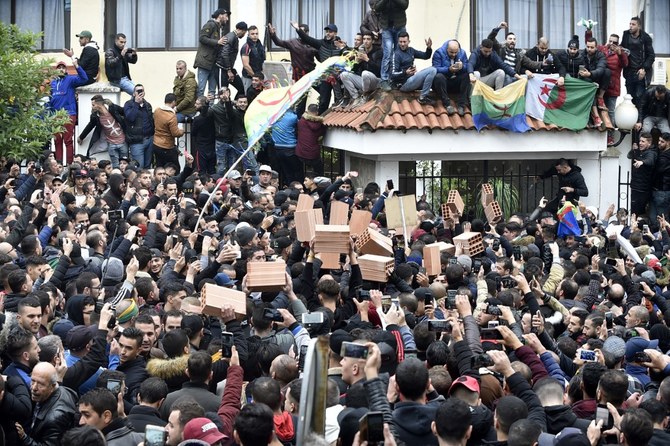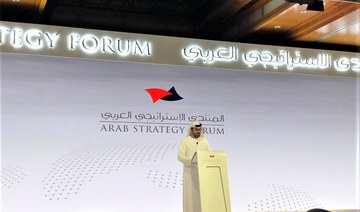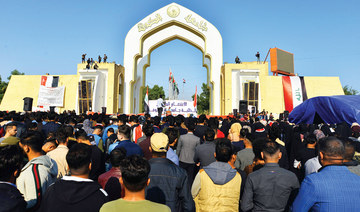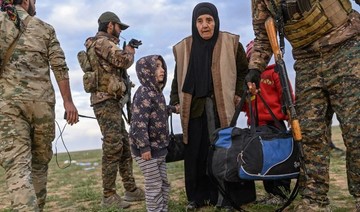DUBAI: The quality of youth is said to determine the kind of future a nation will have. Experience shows that high levels of youth participation in a country’s workforce and political discourse can have a positive impact on societal development. Sadly, only a few Arab countries offer their youth these opportunities.
In the Arab world, 65 percent of the population are under the age of 30. According to an Arab News — Arab Strategy Forum research study conducted by YouGov, 55 percent of this demographic group believe corruption is the main problem in their country, followed by unemployment (46 percent) and lack of trust in government (30 percent) .
The study interviewed 3,079 Arabic speakers aged 18 years and above across 18 countries in the Middle East to better understand their concerns, and to gauge their opinions on the intersections of Islam and politics in Arab life.
The Arab world’s second-biggest concern, according to both men and women, is the ability to earn a living wage.
The issue proved more pressing among people aged 18-25 (47 percent) than among those aged over 40 (37 percent).
The rate of unemployment can be directly linked, experts say, to the level of systemic corruption in a country, given the known connection between lack of transparency and decline in investment and economic activity.
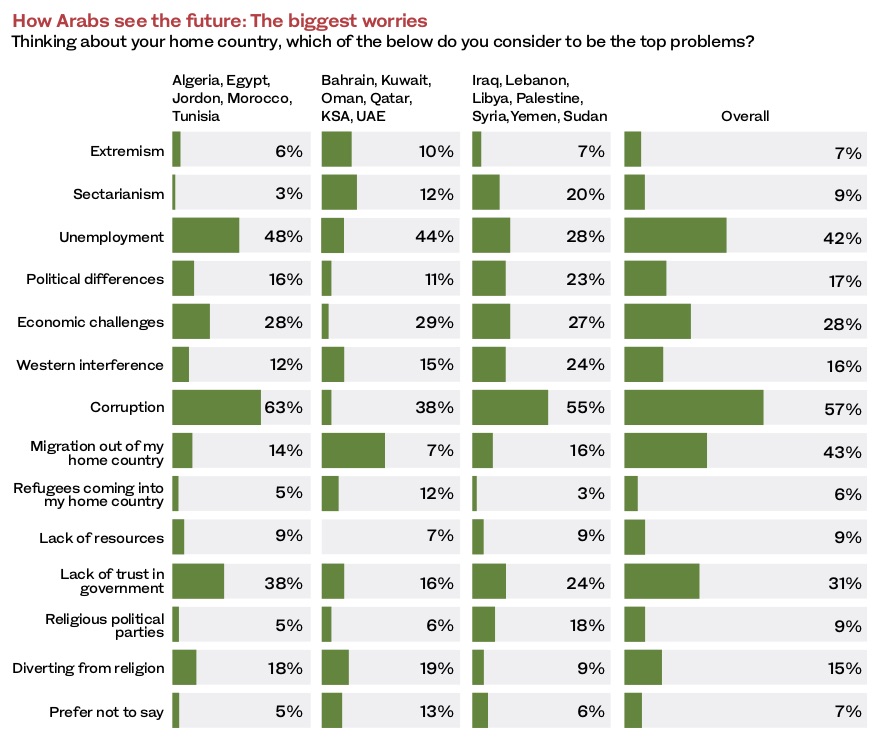
Abeer Alnajjar, associate professor at the American University of Sharjah and researcher in Middle East politics, says faulty policy design has lowered trust in Arab economies and hindered job creation.
Unsustainable strategies, and lack of investment in industrial, agricultural and other development projects, have left many Arab countries saddled with heavy economic burdens.
Among the study’s many findings is that in the Arab Gulf states, 41 percent worry about finding a job. The number rises to 45 percent in North Africa and drops to 36 percent in the Levant.
Unemployment was cited as the top problem by respondents in Morocco (68 percent) and Oman (56 percent), surpassing corruption as the leading problem.
Aside from political and administrative obstacles, one of the main causes of unemployment in the Arab world is believed to be the mismatch between higher education curricula and the skill sets demanded by the job market.
Alnajjar told Arab News that there is a need for “a paradigm shift” in the region’s education systems.
“Major subjects and areas of specialization need to be redesigned in light of new technologies and proper use of available educational resources,” she said.
Earlier this year, figures released by the International Labor Organization (ILO) showed that one in five people under the age of 25 in the Arab world were “jobless and have no skills.”
Marghoob Butt, executive director of the Organization of Islamic Cooperation’s Independent Permanent Human Rights Commission, described youth in a recent opinion piece in Arab News as “the future in every society.”
#ArabStrategyForum: A majority of Iraqis and Lebanese believe religion is affecting their government's political decisions, and that separation of religion and politics would lead to less wars, suggests a YouGov pan-Arab poll. Watch the video for more of the survey results. pic.twitter.com/pPkHwcpB60
— Arab News (@arabnews) December 9, 2019
Currently, a significant part of the young population is inactive, according to Butt. Those actively seeking jobs tend to face serious challenges and stress due to “limited opportunities for social mobility and restriction on participation in social, cultural, economic and political life,” he said.
With regard to popular political views among Arab youth, the YouGov poll showed that those aged 18-24 are the least likely to support the statement: “Extremist views have no place in Islam.”
Alnajjar said that is not entirely surprising given that a good understanding of issues relating to governance, religion and economic policies comes from “access to information, freedom of the press and good journalism” — three factors that are “greatly limited” in Arab countries.
While this demographic group may have more access to resources than any other generation in history, much of it is “lost in the abundance of information” found on the internet, she added.
“Unfortunately, Arab youth are more exposed to extremist representations of Islam due to how the ‘attention economy’ is structured to prioritize content” of inferior quality and maximum appeal, she said.
Many Arab youth are deeply engaged in public life, and are making an effort to stay informed.
But publicly available information is often “controlled and manipulated” by individuals whose goal is to “divert the attention of young men and women toward ideological battles that have little relevance to their day-to-day life and their future,” Alnajjar said.
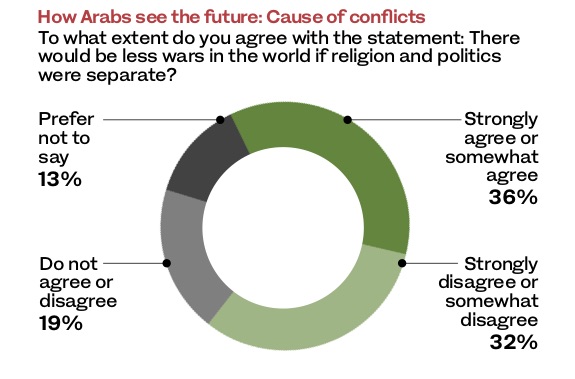
The majority of young Arabs are fundamentally connected to Islam, with religion being one of the most important pillars of their identity, she added.
“But they face the world from a disadvantage because of certain groups and countries that have been using Islam as an instrument to achieve their geopolitical objectives,” she said.
For this, the blame partly lies with Arab intellectuals and leaders who have failed to discuss “sensitive topics” that can broaden the conversation with today’s youth, Alnajjar added.
In the Middle East’s current politically charged environment, young men and women are being used as an “accessory” in political and educational conflicts, and viewed as “fuel” for ideological battles, she said.
The hopes and ambitions of the Arab world’s youth will remain unfulfilled until they get a well-rounded education, Alnajjar added.
Curricula need to be redesigned, and media literacy and critical thinking must be introduced as elements of lifelong learning programs and processes for Arab citizens, she said.



